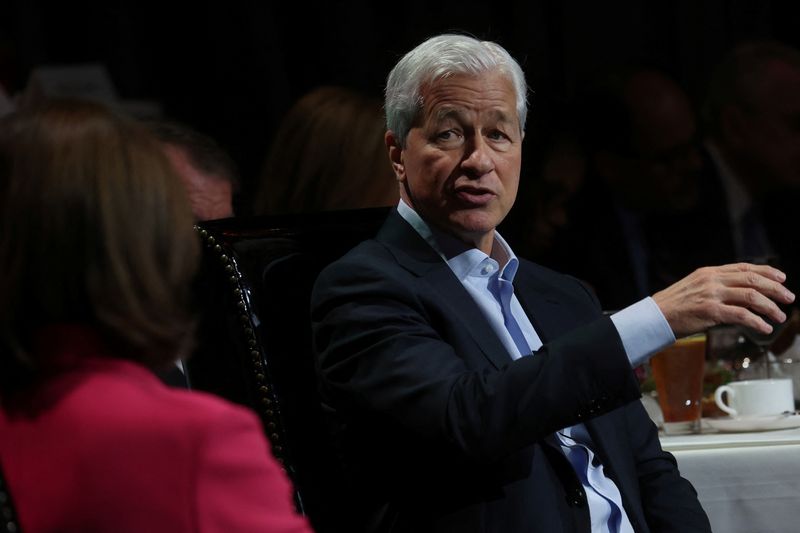In a recent report by the New York Times, JPMorgan Chase CEO Jamie Dimon hinted at the possibility of accepting a government position, potentially as Treasury Secretary, should Democratic Vice President Kamala Harris secure the U.S. presidency. Despite the speculation around his potential government role, Dimon has deliberately chosen to keep his intentions private, motivated by concerns about the political ramifications if his mention of such a role were met with backlash from the Republican candidate, Donald Trump. This situation underscores the tightrope walk Dimon must navigate as a prominent figure in the banking sector, particularly in the face of the upcoming presidential election.
Dimon has been a consistently notable candidate for senior economic positions within the U.S. government owing to his extensive experience and influence in the banking industry. Nevertheless, during JPMorgan’s post-earnings conference call earlier this month, he conveyed a sense of skepticism regarding the likelihood of being asked to serve in a governmental capacity, labeling it as “almost nil.” Nonetheless, he acknowledged the fluctuating nature of such opportunities, stating, “And I probably am not going to do it. But I always reserve the right” to change his mind, indicating that he remains open to the possibility under the right circumstances.
Having taken charge of JPMorgan in 2006, Dimon has consistently advocated for sound economic policies and serves as a vocal proponent of American exceptionalism. In his well-publicized annual letter earlier this year, he expressed his patriotic sentiments, reinforcing the notion that the welfare of the country is paramount to him—an assertion he reiterated during the recent analyst call. Dimon’s commitment to prioritizing national interests over corporate obligations reflects his deep-rooted sense of duty, which resonates within political discourse surrounding economic stewardship.
When discussing succession planning at JPMorgan, Dimon has assured stakeholders that both he and the board will prioritize making principled decisions when the time comes for him to step down from his role. While he has refrained from divulging specific plans, his remarks suggest a proactive approach to leadership transition, which is often a topic of keen interest for shareholders and analysts alike. The qualities he embodies as a leader are important, not just for wholly personal reasons but also for the implications they hold for the future direction of the bank and its alignment with broader economic policies.
Meanwhile, JPMorgan has refrained from providing any official commentary in response to the speculative report about Dimon’s potential involvement in government. This silence may indicate a desire to maintain focus on the bank’s ongoing operations and performance rather than engaging in political narratives. Similarly, spokespersons for both the Harris and Trump campaigns have yet to comment on the matter, highlighting a general reticence among political entities to disrupt their current messaging strategies as the election approaches.
In conclusion, Jamie Dimon’s contemplation of a government position, potentially as Treasury Secretary if Kamala Harris were to win the presidency, illustrates the interplay between corporate leadership and political dynamics. While Dimon has expressed hesitance about accepting such roles, his patriotic sentiment and his commitment to sound economic principles depict a multifaceted leader aware of the responsibilities that extend beyond the confines of JPMorgan. As the political landscape evolves in the lead-up to the presidential election, the implications of such considerations serve as a reminder of the interconnectedness of finance and governance in shaping the future economic landscape of the United States.

